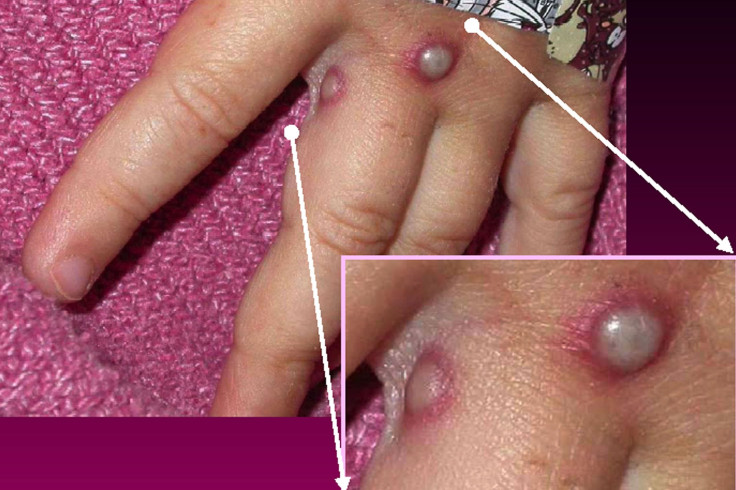Monkeypox: Virus Detected In Maryland Resident Who Returned From Nigeria
KEY POINTS
- The traveler presented with mild symptoms
- Laboratory scientists confirmed the monkeypox diagnosis this week
- There are "no special precautions" recommended for the general public
Health authorities have confirmed a single case of the rare monkeypox in Maryland. They are currently working on contacting those who may have been exposed to the rare yet contagious virus.
The patient had recently returned to the U.S. from Nigeria, the Maryland Department of Health (MDH) noted in a news release. They reportedly presented mild symptoms and are currently recovering in isolation but are not hospitalized.
According to the U.S. Centers for Disease Control and Prevention (CDC), the strain that laboratory scientists confirmed in the patient actually matches the one that has been "re-emerging" in Nigeria since 2017, after 40 years without reported cases.
RELEASE: The @MDHealthDept, in collaboration with the @CDCgov, today confirmed a single case of monkeypox virus infection in a Maryland resident who recently returned from Nigeria.
— Maryland Department of Health (@MDHealthDept) November 17, 2021
Learn more: https://t.co/GhXLA2vnd3
Since travelers are required to wear masks on the plane and in U.S. airports because of the pandemic, the risk of monkeypox spreading via respiratory droplets in these locations is "low." As the World Health Organization (WHO) explained, transmission of the disease through respiratory droplets requires "prolonged" face-to-face contact.
The CDC is still working with the MDH and other health partners to investigate the case. It is also collaborating with airlines and even international counterparts to contact and assess the risks of anyone whom the patient may have been in close contact with on the plane and after their arrival in the U.S.
"Public health authorities have identified and continue to follow up with those who may have been in contact with the diagnosed individual," Dr. Jinlene Chan, deputy secretary for public health at MDH, said in the news release. "Our response in close coordination with CDC officials demonstrates the importance of maintaining a strong public health infrastructure."
With the first human case of monkeypox recorded in 1970 in the Democratic Republic of Congo, human monkeypox infections mainly occur in central and western African countries and "rarely" outside of Africa. Since the 2017 re-emergence of the disease in Nigeria, there have been 218 cases confirmed in the country and additional eight cases among international travelers, the CDC noted.
Those traveling from central or western Africa are urged to notify their healthcare provider if they experience any of its symptoms, such as swelling of the lymph nodes, fever, muscle aches and a rash.
The incubation period of monkeypox is typically six to 13 days but may range from five to 21 days, the WHO noted. The skin eruptions may begin one to three days after the fever appears.
"No special precautions are recommended at this time for the general public," the MDH noted.

© Copyright IBTimes 2025. All rights reserved.






















